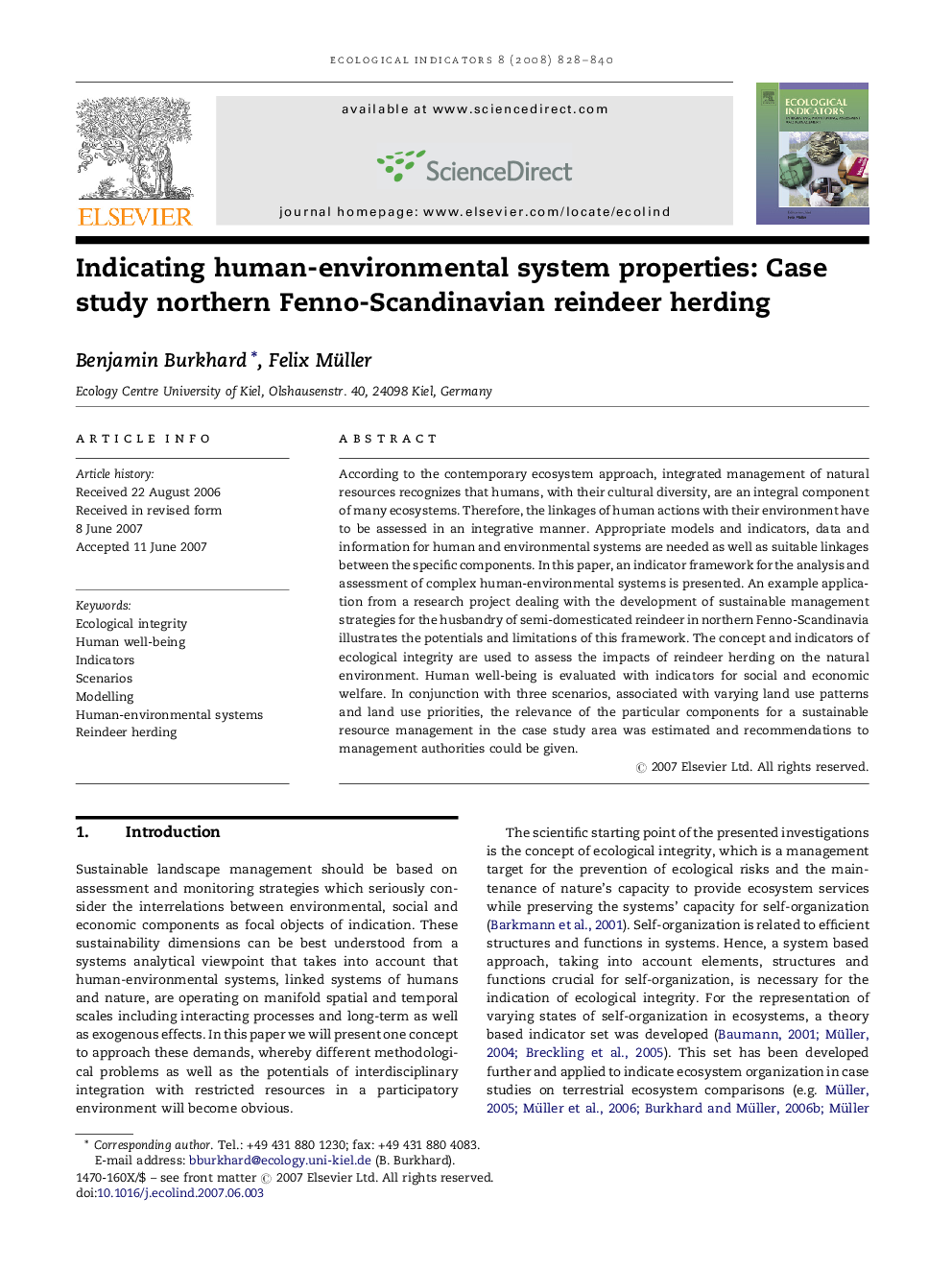| Article ID | Journal | Published Year | Pages | File Type |
|---|---|---|---|---|
| 4374617 | Ecological Indicators | 2008 | 13 Pages |
According to the contemporary ecosystem approach, integrated management of natural resources recognizes that humans, with their cultural diversity, are an integral component of many ecosystems. Therefore, the linkages of human actions with their environment have to be assessed in an integrative manner. Appropriate models and indicators, data and information for human and environmental systems are needed as well as suitable linkages between the specific components. In this paper, an indicator framework for the analysis and assessment of complex human-environmental systems is presented. An example application from a research project dealing with the development of sustainable management strategies for the husbandry of semi-domesticated reindeer in northern Fenno-Scandinavia illustrates the potentials and limitations of this framework. The concept and indicators of ecological integrity are used to assess the impacts of reindeer herding on the natural environment. Human well-being is evaluated with indicators for social and economic welfare. In conjunction with three scenarios, associated with varying land use patterns and land use priorities, the relevance of the particular components for a sustainable resource management in the case study area was estimated and recommendations to management authorities could be given.
